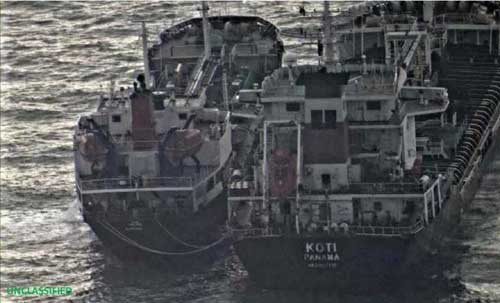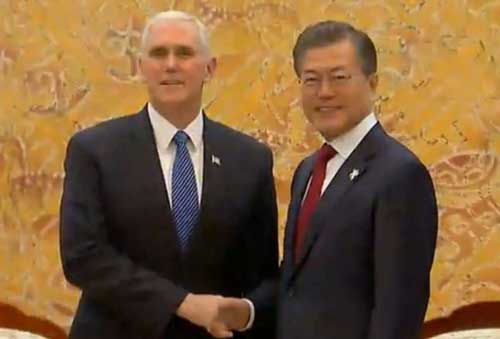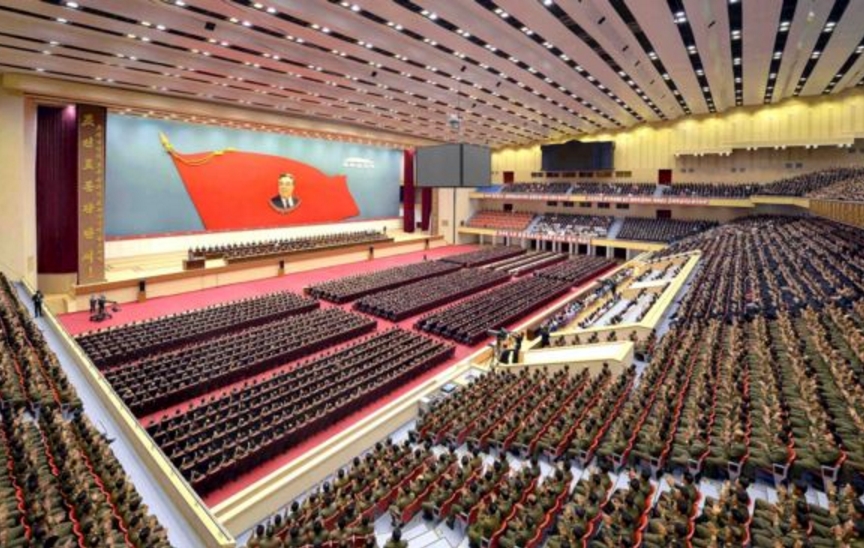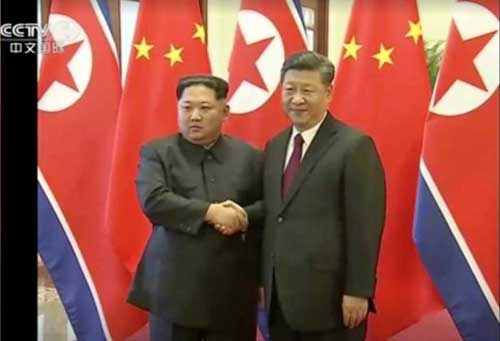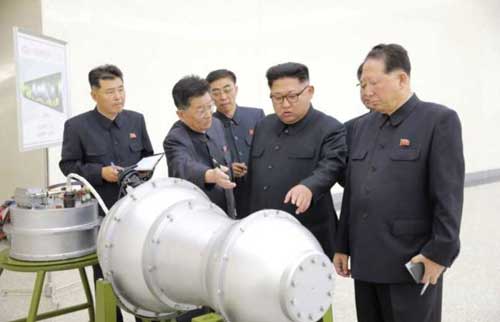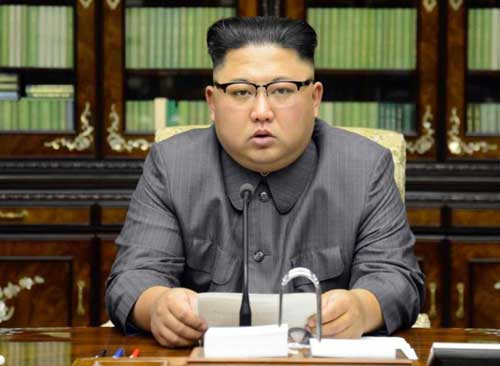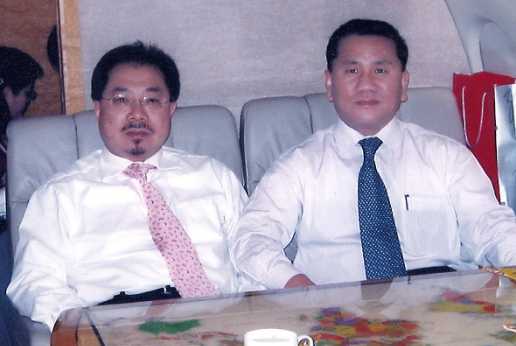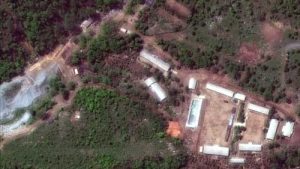
SEOUL — North Korea shut down its Punggye-ri nuclear test site on Thursday to demonstrate its commitment to denuclearization in advance of the planned U.S.-North Korea summit. The development came hours before President Donald Trump called off the highly anticipated meeting.
The South Korean government welcomed the North’s unilateral nuclear concession to help facilitate a broader agreement with the United States to completely end its nuclear weapons program in exchange for ending punishing sanctions and security guarantees.
“We are hoping that this action will become the opportunity for complete denuclearization in the future,” South Korea Foreign Ministry spokesman Noh Kyu-duk said.
However, while the closure of the nuclear test complex is a significant symbolic gesture, analysts are skeptical it will seriously inhibit the Kim Jong Un government’s ability to carry out further nuclear tests in the future.
“That renders the test site unusable, but not forever and it’s not like North Korea has a shortage of mountains or people to make new tunnels,” said Jeffrey Lewis, the director of the East Asia Nonproliferation Program at the Middlebury Institute of International Studies in California, during an interview with Vice News.
Nuclear discontinuance
North Korea conducted all six of its nuclear tests at the Punggye-ri underground site that includes at least two extensive tunnel systems, according the 38 North website that monitors the North’s nuclear activities. Each nuclear test conducted at the site was progressively more powerful, with the first bomb detonated in 2006 producing an estimated 1-2 kiloton yield, much less powerful than the 16-kiloton bomb the United States used on Hiroshima during World War II, and the last test in 2017 producing close to a 250-kiloton yield.
There were reports that the last nuclear test in September of 2017 triggered a tunnel collapse rendering the site unusable, but analysts say there were still two other tunnels that could be used for future tests.
Earlier this year North Korean leader Kim Jong Un said his country no longer needed to conduct tests, because it had completed its goal of developing nuclear weapons.
The official Korean Central New Agency said this month that the dismantlement of the Punggye-ri nuclear test ground would involve collapsing all of its tunnels with explosions, blocking its entrances, and removing all observation facilities, research buildings and security posts.
And KCNA said outside observers would be allowed to watch the closure, “in order to ensure transparency of discontinuance of the nuclear test.”
Shutdown skeptics
South Korean media organizations reported the closure of the Punggye-ri site in the early evening of Thursday. Nuclear weapons experts will have to study satellite images of the blasts to determine the extent of the site closure.
Some analysts have speculated the North would stop short of complete dismantlement and instead seal only the portal entrances to the tunnels, so that workers could later dig out the entrances to make the site operational again, if the government ever wants to resume nuclear tests.
Critics have voiced concern that the closing of the Punggye-ri site does not constitute irreversible denuclearization measures the United States is demanding, and note that in 2007 North Korea disabled its Yongbyong nuclear reactor as part of a deal to end its nuclear program for economic aid, only to restart that facility years later.
North Korea backed out of its initial plan to allow in nuclear weapons experts to observe the closure of the site.
Outside inspectors might have learned a lot about the power and impact of the nuclear tests by studying radiation levels at the site. By shutting down the site, critics argue, North Korea is actually hiding data that would confirm its nuclear capabilities.
A 38 North analysis that was posted online Wednesday said the nuclear site closure was, “tantamount to destruction of evidence and site sanitization.”
Journalists journey
North Korea did invite a small group of international journalists from the United States, South Korea, China, Russia, and the United Kingdom to view the closure of the nuclear site.
Tom Cheshire, the Asia correspondent for Sky News, who is one of the selected journalists covering the closure of the nuclear site, said North Korean authorities confiscated dosimeters that many reporters brought with them to measure radiation at the site.
Most of the journalists flew from Beijing to the coastal city of Wonson on Tuesday. South Korean reporters were initially barred from coming, as the North took on a more confrontational tone over a range of concerns from hardline U.S. denuclearization demands to the U.S.-South Korea military exercises underway.
On Wednesday the South Koreans were allowed to join the other journalists. In the afternoon they began an 18 hour journey, which included a 12 hour train ride, four hours on a bus, and a two hour hike to the viewing station recently constructed near the Punggye-ri site.
They will have very little limited ability to contact the outside world until they return to Wonson on Friday.
Unilateral concession
The closing of the country’s nuclear site could help reassure the United States the North is committed to work out an agreement to end its nuclear program.
North Korea recently threatened to pull out of the upcoming U.S.-North Korea nuclear summit to be held in Singapore after U.S. officials called for a Libya model approach, which involved the country’s total nuclear dismantlement before any concessions were granted, and was followed by the overthrow of the country’s leader Muammar Gaddafi some years later.
North Korea has called for a gradual process that links early concessions to incremental denuclearization measures.
On Thursday North Korea’s vice foreign minister said the future of the summit between Pyongyang and Washington is “entirely” up to the United States, and condemned a media interview by U.S. Vice President Mike Pence in which he compared the North to Libya.
“We will neither beg the U.S. for dialogue nor take the trouble to persuade them if they do not want to sit together with us,” said Vice Foreign Minster Choe Son Hui, according to a KCNA report.
Lee Yoon-jee in Seoul contributed to this report
Source: VOA
[content id=”35021″]

